Driving Record Background Checks: Comprehensive Guide
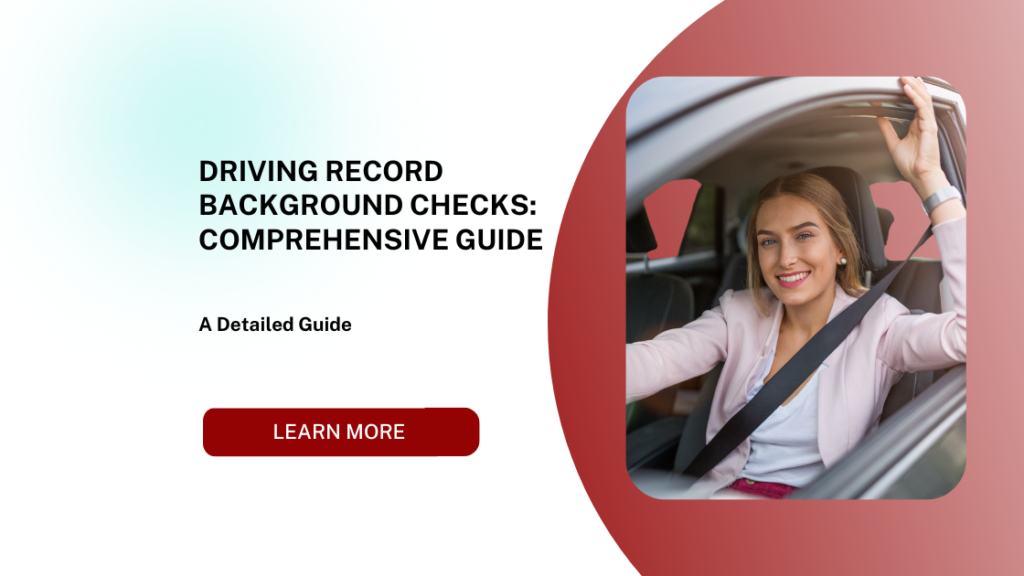
Introduction to Driving Record Background Checks
A driving record background check is a process used to evaluate a person’s driving history, which includes details about traffic violations, accidents, DUI/DWI offenses, and other relevant information. Employers, insurance companies, and other organizations may conduct driving record checks to assess a person’s driving habits, responsibility, and overall suitability for positions that require operating vehicles.
Driving record background checks are crucial for employers, particularly those in industries where driving is a primary function of the job, such as transportation, delivery services, and logistics. By checking driving records, employers ensure they hire responsible drivers who meet company standards for safety and reliability. Similarly, insurance companies use driving record checks to determine premiums, as a person’s history can be indicative of future risk.
Why Conduct a Driving Record Background Check?
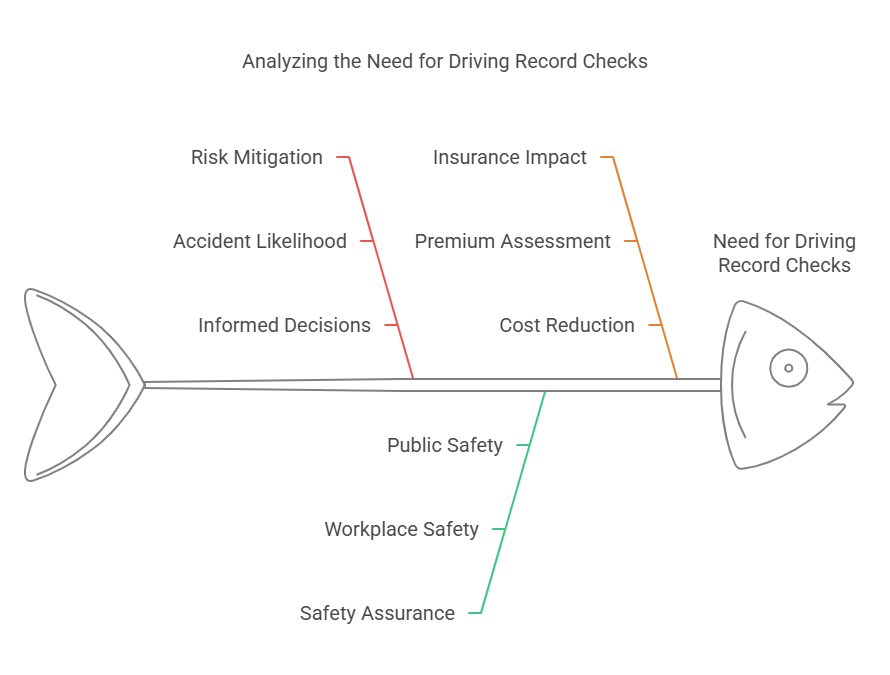
Conducting a driving record background check offers several benefits for employers and other organizations:
- Mitigate Risk: A person’s driving history can be an indicator of their likelihood to be involved in future accidents. By reviewing past behavior, employers and insurance companies can make more informed decisions to reduce risk.
- Ensure Safety: For roles that involve driving, ensuring employees have a clean or acceptable driving record is vital for workplace safety. Hiring individuals with a history of reckless driving can put the company, their coworkers, and the public at risk.
- Insurance Premiums: Insurance companies use driving record checks to assess risk and determine premiums for individuals and businesses. A person’s driving history directly impacts their insurance rates, as a clean record typically results in lower costs.
What Information Is Included in a Driving Record?
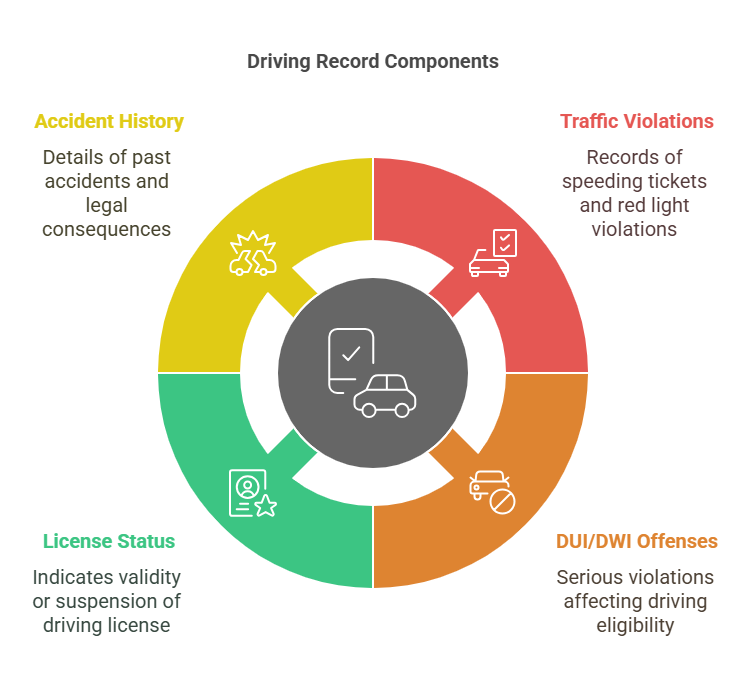
A driving record provides a comprehensive history of a driver’s performance on the road, including:
- Traffic Violations: Includes speeding tickets, red light violations, or any other citations that show up on the individual’s record.
- DUI/DWI Offenses: Driving under the influence (DUI) or driving while intoxicated (DWI) offenses are serious violations and can have long-term impacts on a person’s ability to drive or work in driving-related positions.
- License Status: The record will indicate whether a person’s license is valid, suspended, expired, or revoked, which is essential information for employers assessing driving eligibility.
- Accident History: If a person has been involved in an accident, it will typically be recorded along with details such as fault, damage, and any resulting penalties or legal consequences.
How Driving Record Checks Are Conducted
There are several ways to obtain a driving record background check:
- DMV (Department of Motor Vehicles): Each state’s DMV maintains records of driving activity. Individuals can request their own driving records or request records for someone else with their consent.
- Third-Party Services: Many companies, like ExactBackgroundChecks.com, offer driving record background check services. These third-party services can provide more streamlined access to records and may also offer additional features like fast processing and nationwide checks.
Common Types of Driving Offenses and Their Impact
Below is a list of common driving offenses that might appear in a driving record background check, along with their potential impacts:
| Offense | Impact on Employment | Impact on Insurance |
|---|---|---|
| Speeding Tickets | May disqualify applicants for positions requiring safe driving habits. | Can increase premiums, especially for repeated violations. |
| DUI/DWI | Can lead to job disqualification, especially for roles requiring a clean driving record. | Major factor in increasing premiums or denying coverage. |
| License Suspension | Immediate disqualification for driving roles; potential legal consequences. | May result in an inability to obtain insurance or higher premiums. |
| Accident History | Negative impact if the accident was the applicant’s fault, especially in safety-sensitive roles. | Likely to increase insurance rates due to perceived higher risk. |
How Does a Driving Record Background Check Work?
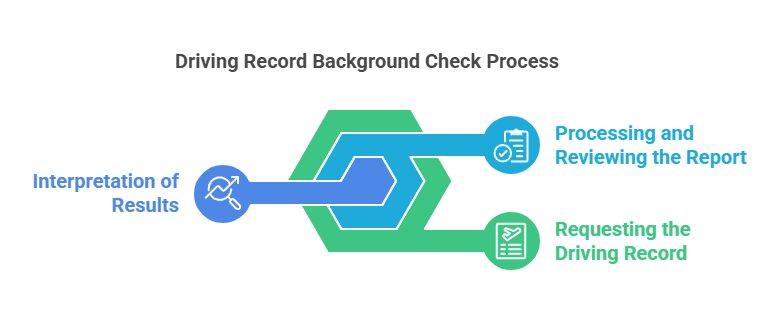
A driving record background check involves obtaining information from a driver’s history to evaluate their driving habits and identify any potential red flags. Here’s how the process typically works:
Step 1: Requesting the Driving Record
You can request a driving record background check in two primary ways:
- DMV Requests: The Department of Motor Vehicles (DMV) in each state allows individuals to request their own driving record, and in some cases, an employer may also request the record with the driver’s consent.
- Third-Party Services: Services like ExactBackgroundChecks.com allow businesses and individuals to easily obtain a driving record for any person within the legal guidelines, often delivering reports faster and more efficiently than through DMV requests.
Step 2: Processing and Reviewing the Report
Once the request is made, the DMV or third-party service will process the information. The report may take a few days to process depending on the method used. The driving record will then be made available to the requester. It’s important to review the report thoroughly to look for violations, accidents, or other red flags that may affect employment decisions or insurance rates.
Step 3: Interpretation of the Results
Employers, insurance companies, and other organizations that use driving record checks need to know how to interpret the information in a report. Some employers may set clear criteria for what is considered an acceptable driving record, such as limiting the number of speeding tickets or allowing one DUI conviction if it occurred several years ago. Similarly, insurance companies may adjust rates based on the number or severity of traffic violations.
Time and Accuracy of the Report
The time it takes to receive a driving record background check depends on how it is requested. DMV requests can take a few days or even weeks, whereas third-party services can often provide instant access to the report.
The accuracy of the report depends on the source of the data. DMV records are generally considered to be highly accurate, but mistakes can still occur. Third-party services rely on state-provided information and are generally accurate, but discrepancies can sometimes arise.
Costs Involved
The cost of a driving record background check varies depending on where the request is made and whether it is for an individual or a business. Generally, obtaining a report from the DMV may cost between $5 to $30 per request. Third-party services might charge a higher fee, but they offer faster turnaround and more comprehensive services.
Legal Considerations and Privacy Concerns
When conducting a driving record background check, several legal considerations and privacy laws must be followed:
- Fair Credit Reporting Act (FCRA): The FCRA regulates the collection and use of background check information, including driving records, for employment purposes. Employers must obtain written consent from the individual before conducting a driving record check.
- State Laws: States have their own rules regarding the access and use of driving records. Some states may restrict access to certain information, such as DUI offenses, unless a background check is being conducted for specific purposes like employment.
- Privacy Concerns: Drivers’ personal data, including their driving history, must be protected under privacy laws. Organizations conducting background checks must ensure that data is handled securely and is not shared improperly.
How Driving Record Background Checks Are Used
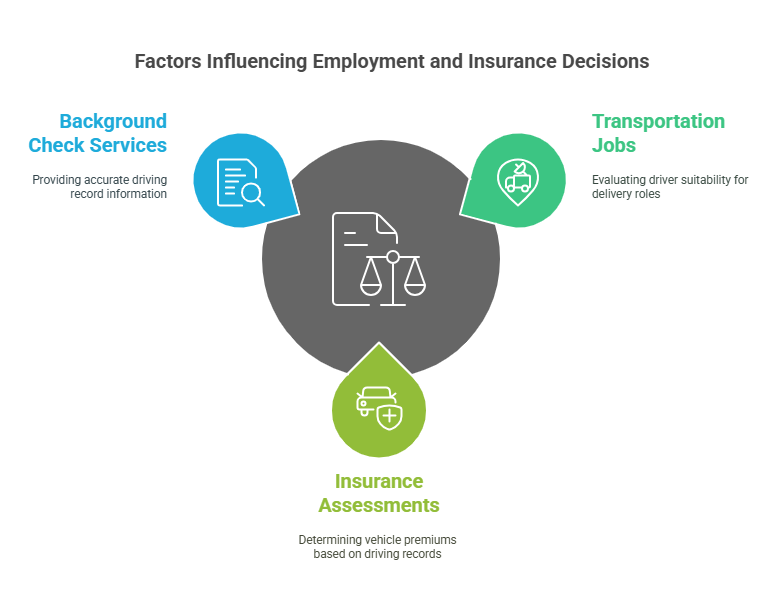
Driving records play a crucial role in employment decisions, particularly for positions that require driving as a primary duty, such as:
- Transportation and Delivery Jobs: Companies hiring drivers for delivery or transportation roles will likely conduct thorough driving record checks to assess the individual’s risk and suitability for the job.
- Insurance Purposes: Insurance companies assess driving records to determine premiums for individuals or business vehicles. A poor driving record often leads to higher premiums.
At ExactBackgroundChecks.com, we provide streamlined, secure driving record checks that help employers and insurance companies make informed decisions based on up-to-date, accurate information.
Legal Aspects, FAQs, and Conclusion
Legal Aspects of Driving Record Background Checks
When conducting a driving record background check, organizations must comply with various legal guidelines to ensure fair treatment and privacy protection:
- Fair Credit Reporting Act (FCRA): The FCRA governs the use of background checks for employment purposes. It mandates that the person being checked must provide consent before the report is accessed. Additionally, if the information in the report leads to a decision not to hire, the individual must be notified.
- State-Specific Laws: Each state has its own regulations regarding the access to and use of driving records. Employers must be familiar with the specific laws in their state to ensure compliance.
- Data Privacy: Organizations must handle all personal information collected during a driving record check responsibly, following data privacy regulations to prevent misuse or unauthorized access.
Frequently Asked Questions (FAQs)
What is a driving record background check?
A driving record background check evaluates a person’s driving history, including traffic violations, accidents, DUI/DWI offenses, and license status.
Why are driving record background checks conducted?
They are conducted to mitigate risk, ensure safety, and determine insurance premiums by assessing a person's driving habits and responsibility.
What information is included in a driving record?
The record includes traffic violations, DUI/DWI offenses, license status (valid, suspended, revoked), and accident history.
How are driving record checks conducted?
They are conducted through the DMV (Department of Motor Vehicles) or third-party services like ExactBackgroundChecks.com, with varying costs and processing times.
What are the legal considerations for driving record background checks?
Legal considerations include compliance with the Fair Credit Reporting Act (FCRA), state-specific laws regarding access and use of driving records, and data privacy regulations.
Conclusion
A driving record background check is a crucial tool for employers, insurance companies, and individuals to ensure the safety and reliability of drivers. Whether for hiring purposes, insurance assessments, or simply ensuring a safe working environment, these checks help reduce risk and maintain a high standard of responsibility on the road. It’s important to follow the proper legal processes when conducting these checks, and to carefully interpret the results to make informed decisions. For businesses and organizations looking for reliable, accurate driving record background check services, ExactBackgroundChecks offers comprehensive solutions to meet your needs.



